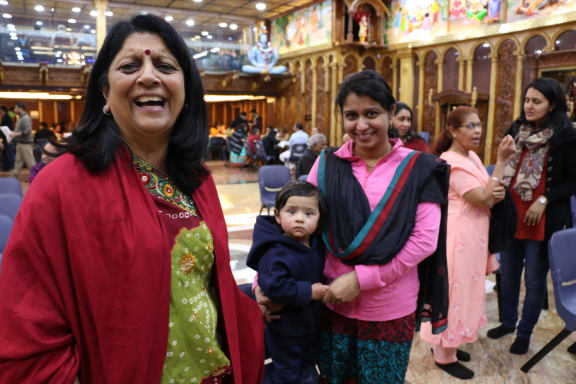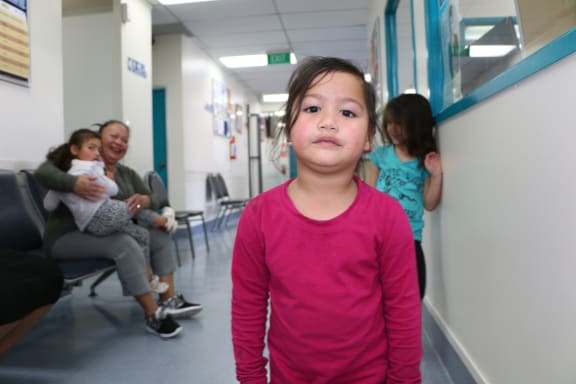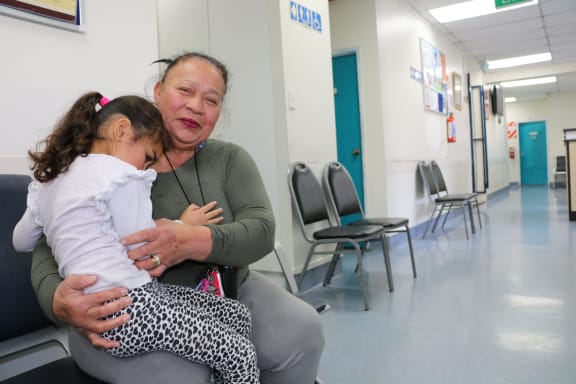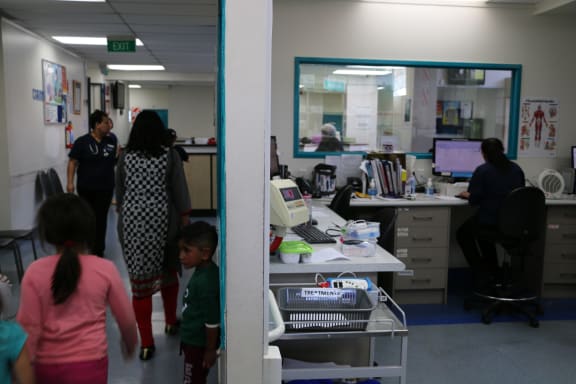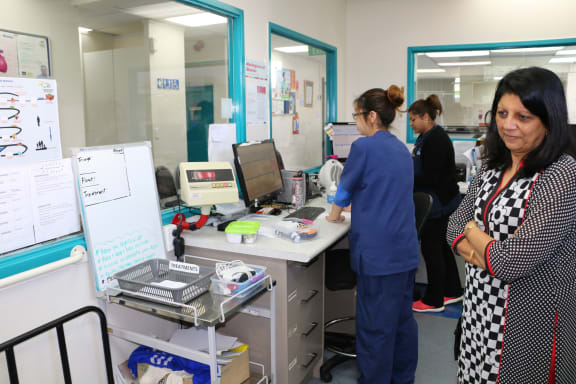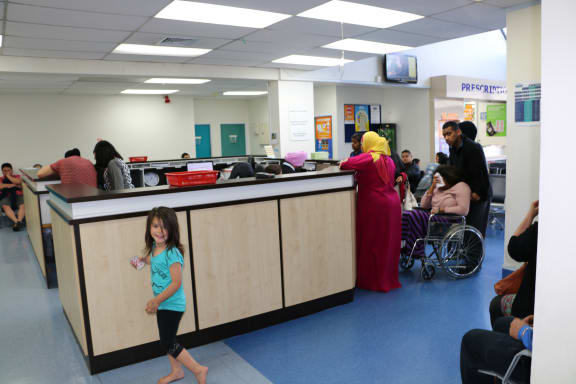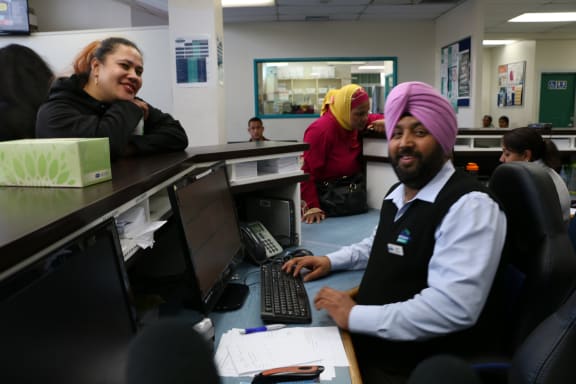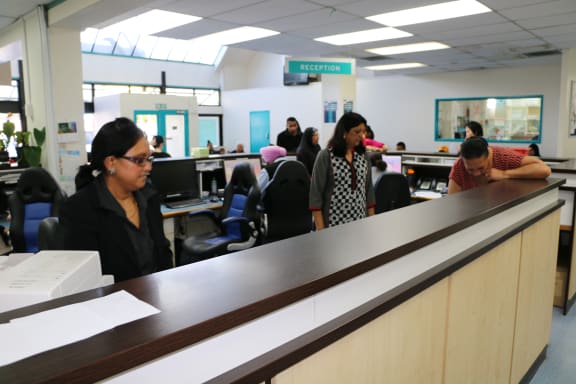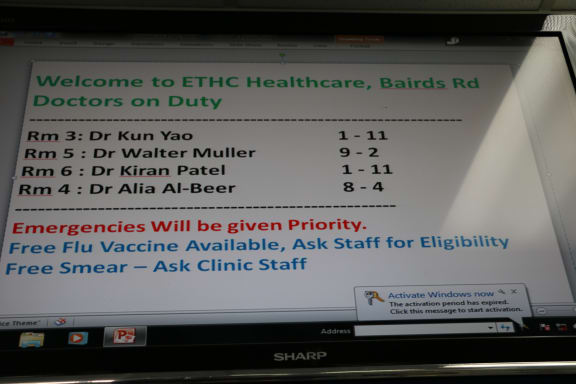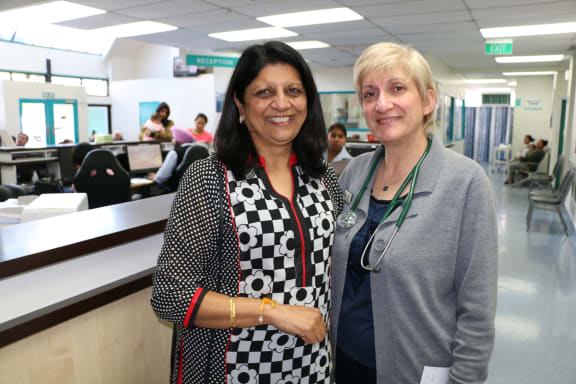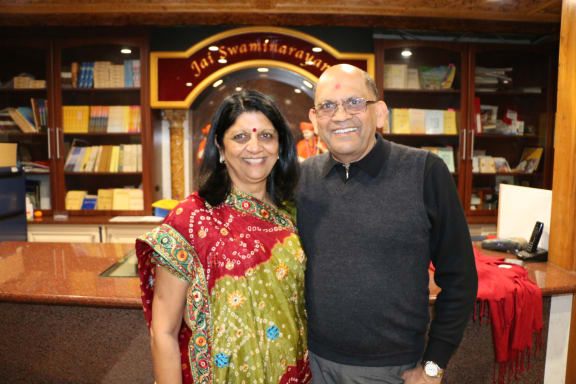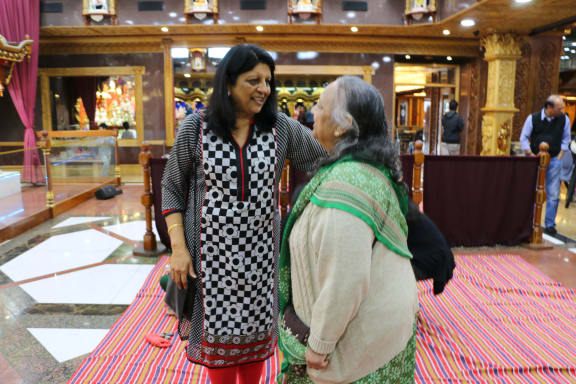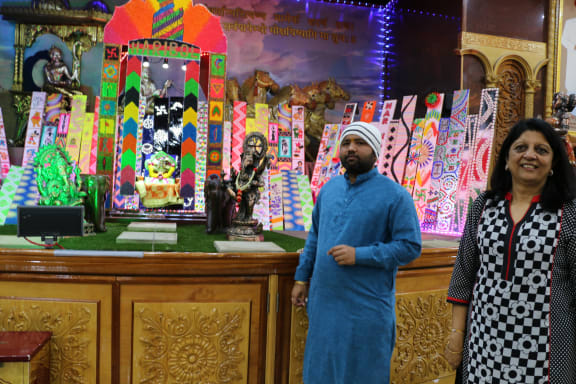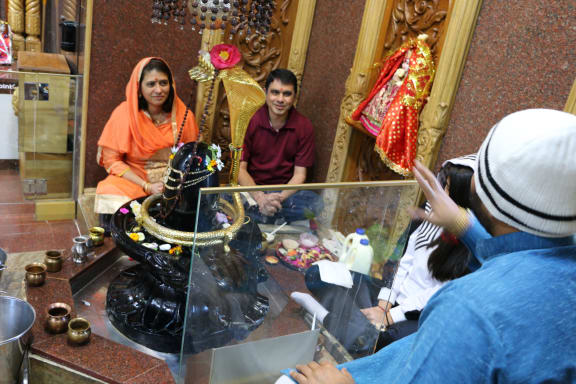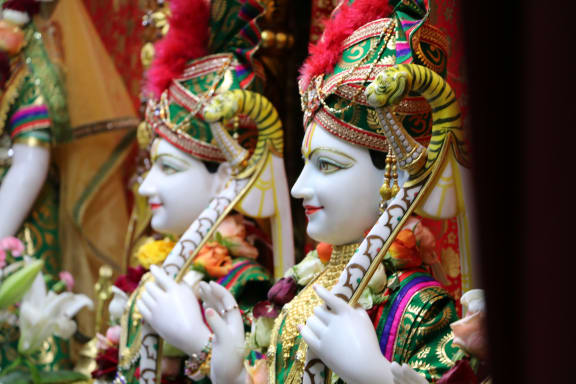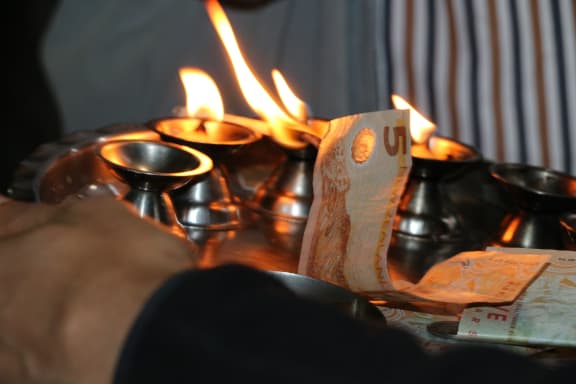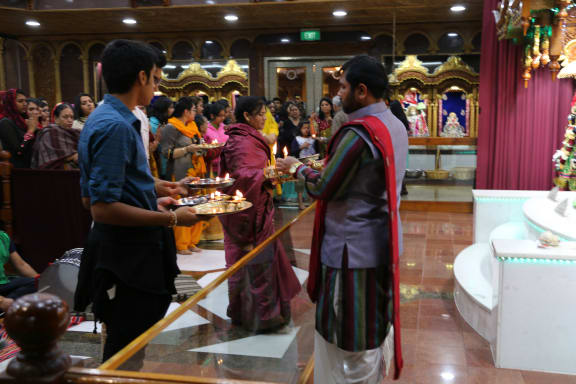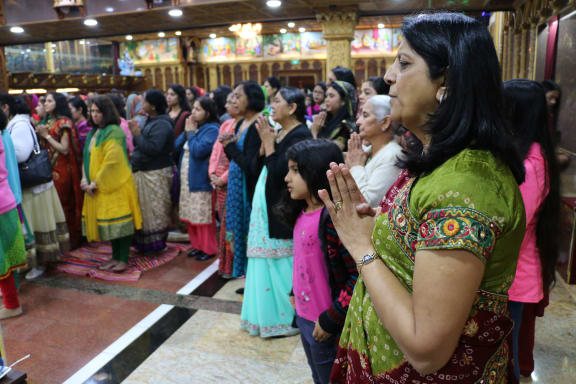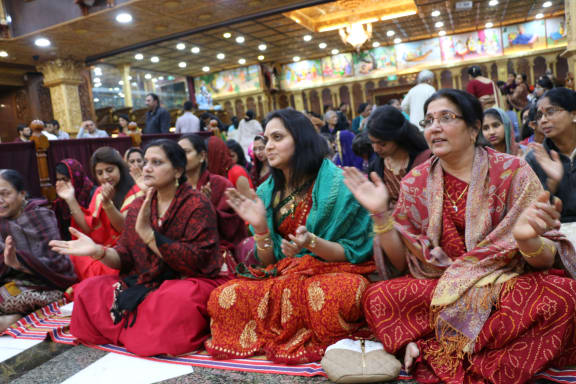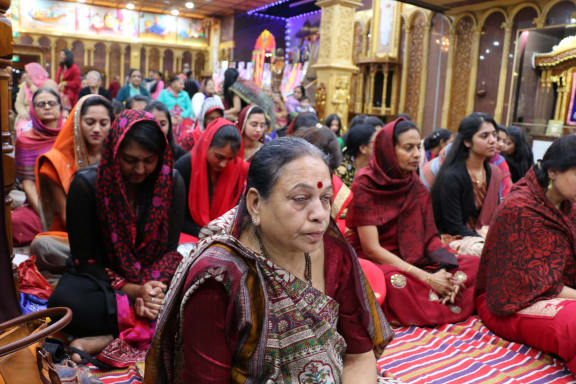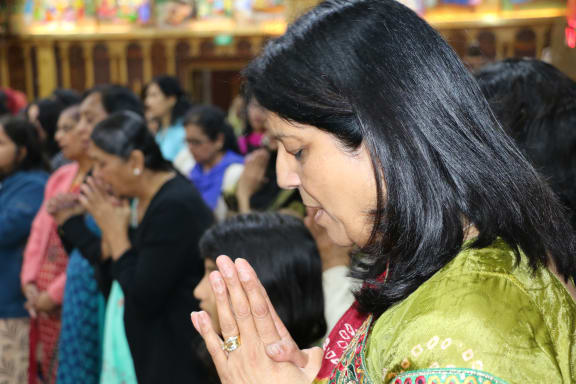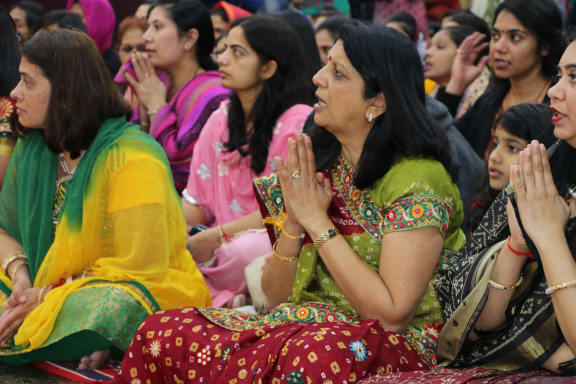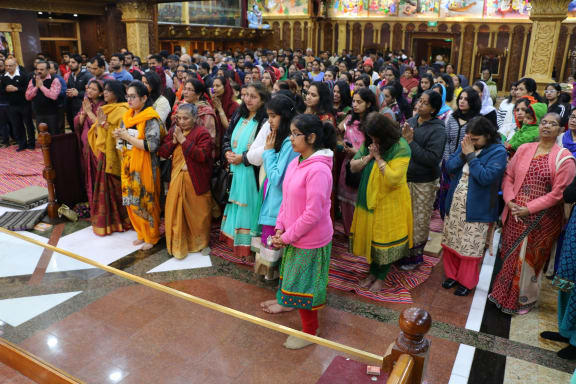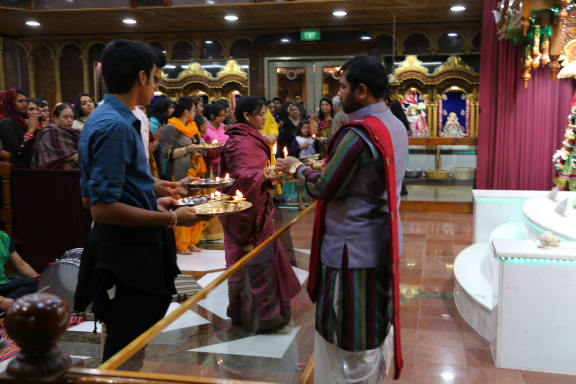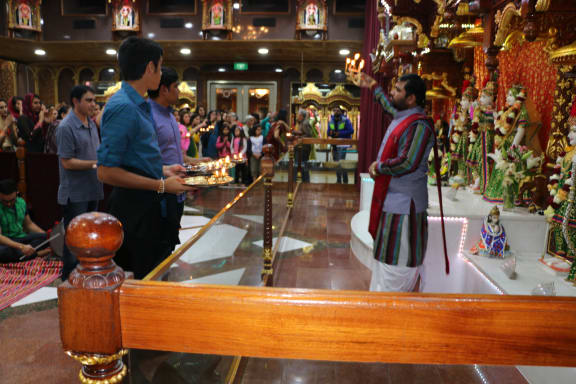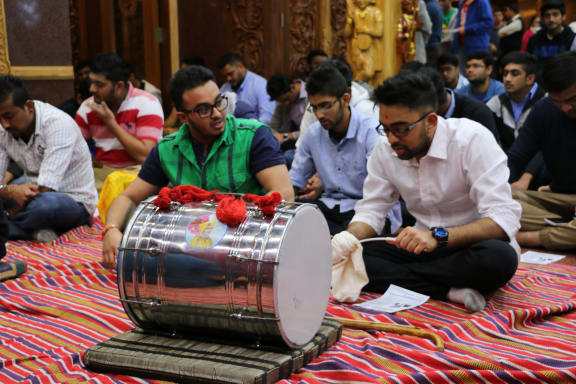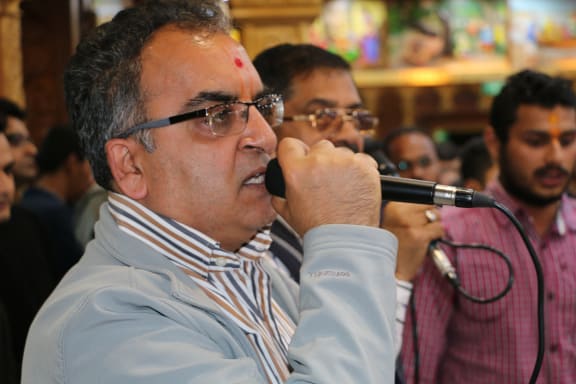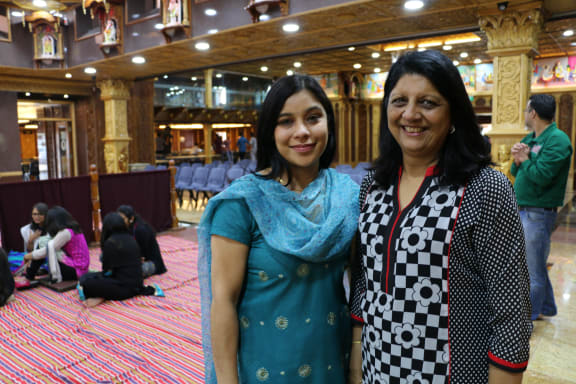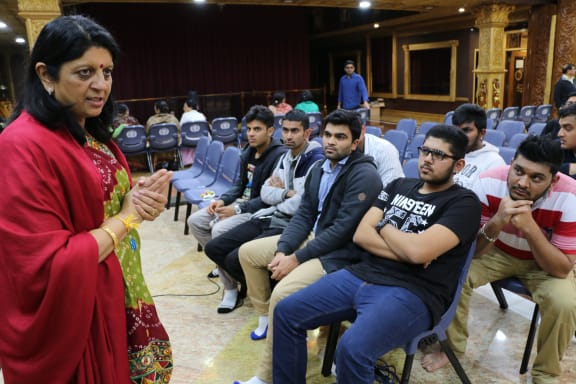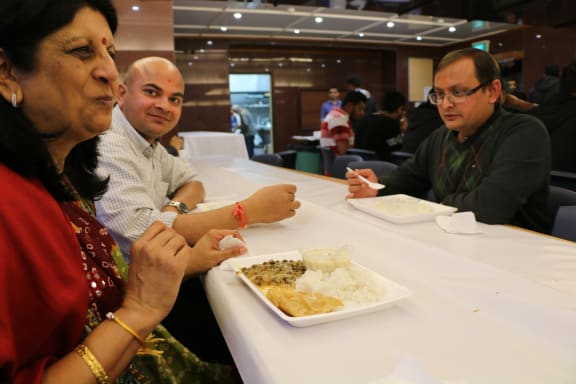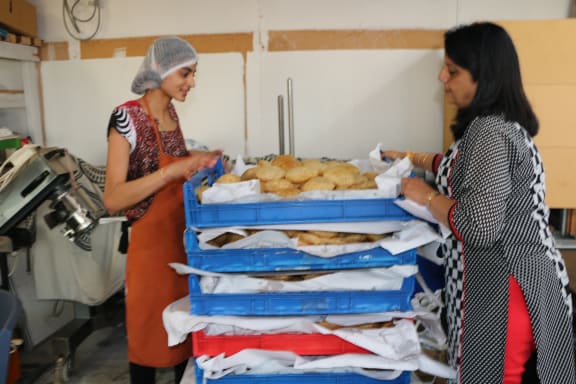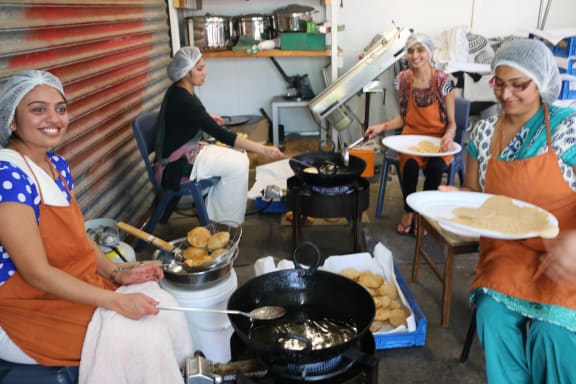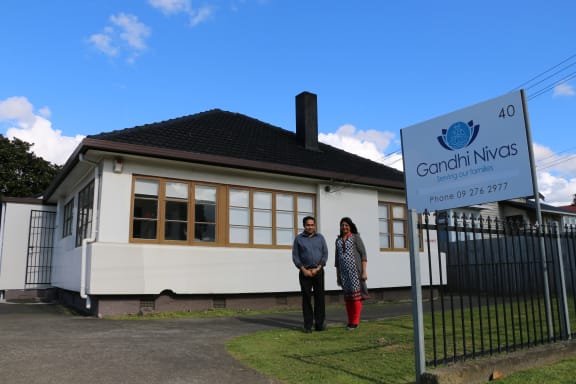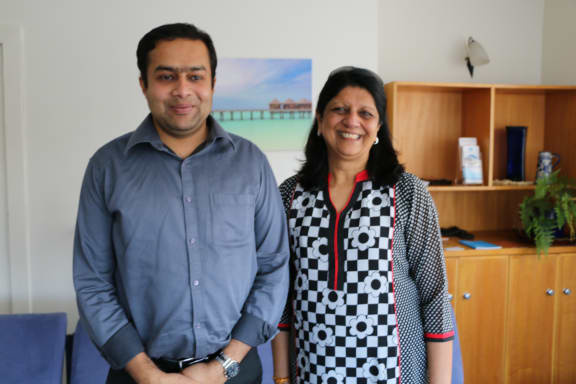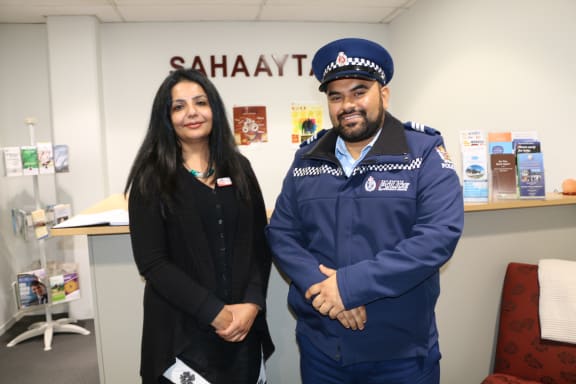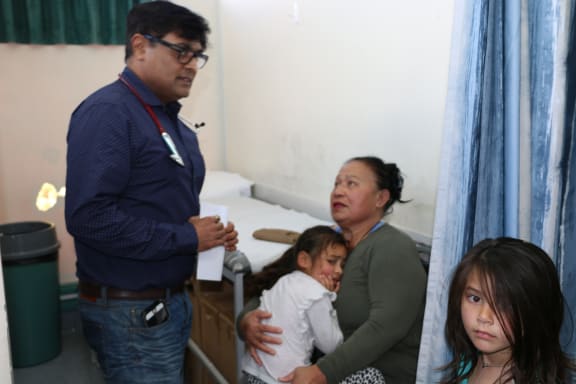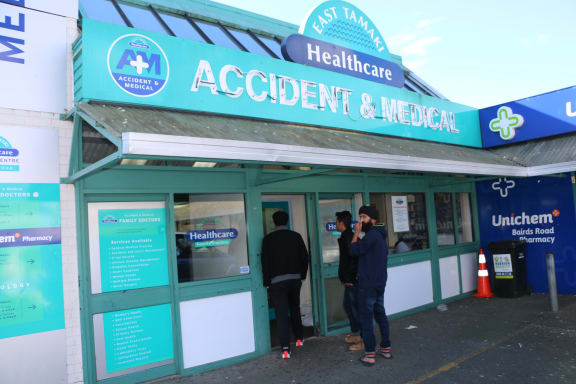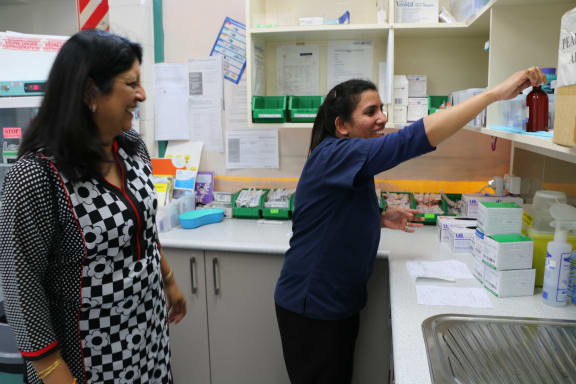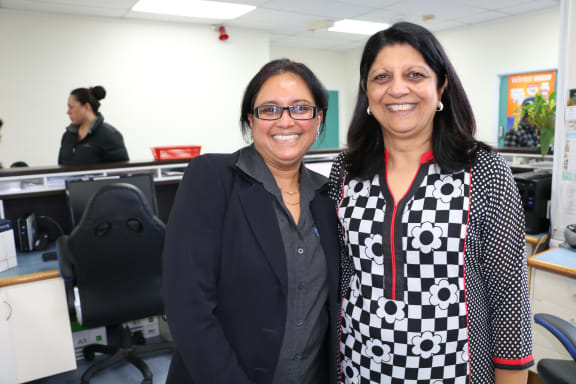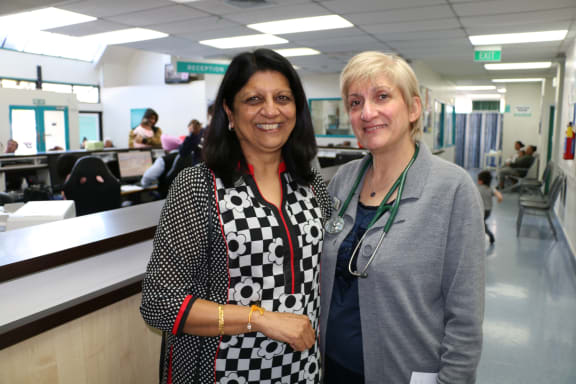'Aunty Ranjna' Patel is a champion for high-needs communities in South Auckland and the first ethnic woman to become a finalist for New Zealand Entrepreneur of the Year.
Lynda Chanwai-Earle meets the inspirational Indian New Zealander.
Bleeding from stitches on a deep cut under her chin, four-year-old Savana has been cuddled by her grandma Mara for the last two hours, waiting so patiently to be seen. They are seated on plastic chairs lined up in the open-plan reception of the emergency clinic in Otara.
Mara is doing her best to console her grandchild, but the delay is demanding. It's the weekend peak time. They're surrounded by half a dozen other children from the Samoan community at cheerful play. They all know each other; this is one big family.
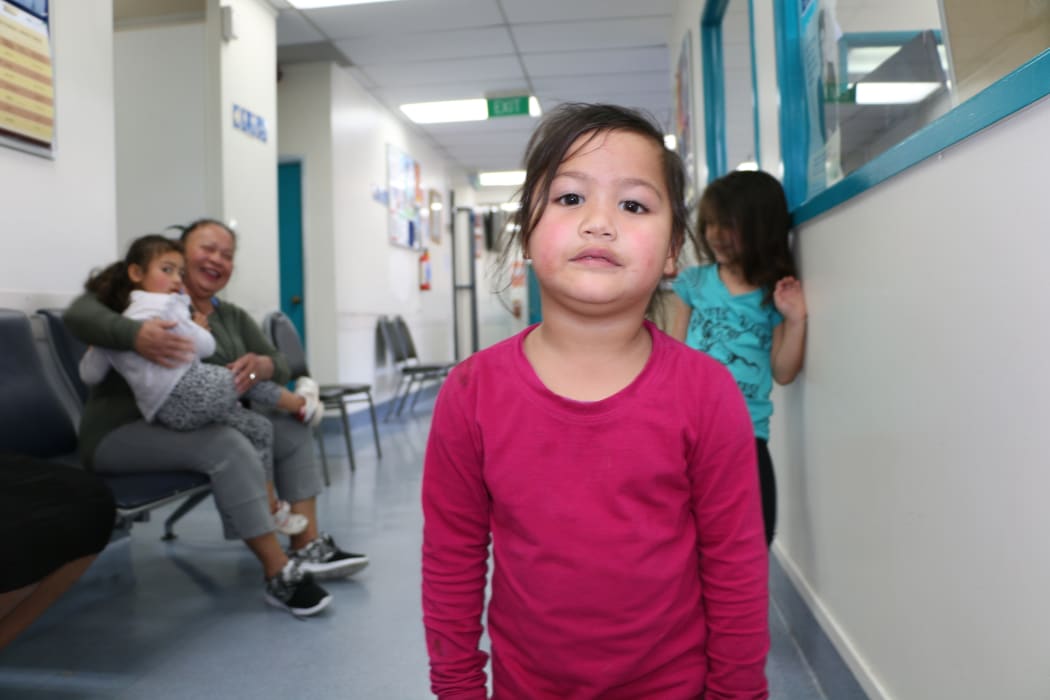
Children at the East Tamaki Health Accident and Medical Clinic in Otara Photo: RNZ / Lynda Chanwai-Earle
At the East Tamaki Accident & Medical Health Clinic in Otara, it’s abundantly clear the staff and four full-time doctors are struggling with overwhelming numbers of patients. But these people cannot afford the alternative - the high fees charged at other emergency clinics, or the drive to an even longer wait at Auckland’s public hospital.
Behind the reception counter, an Indian woman dressed in a traditional salwar kameez and wearing an expression that could be interpreted as motherly checks the staff roster. She's known affectionately as 'Aunty Ranjna' or 'Ranjna Maam' and right now she's listening to staff concerns. Clearly they need more doctors, but medical staff are in short supply in this part of town.
“[This] clinic actually sees more children in the after hours than Starship and Kids First put together - that’s how much of a need in the community the clinic is. It’s a very, very busy high-needs community clinic. Like today we’ve got four doctors working and yet there’s such a big, long waiting time there.”
Nirvana Health Group director Ranjna Patel QSM is making history. She's the first ethnic woman finalist for the New Zealand title in the world’s most prestigious business awards for entrepreneurs - EY Entrepreneur Of The Year.
But it’s not the award that drives this extraordinary Indian-New Zealander. The Nirvana story began in 1977 when Ranjna and her husband Dr Kanti Patel took over a solo GP clinic in Otara.
Today their brand of health provision is delivered through affiliated general practices, urgent care clinics, specialist centres, occupational health clinics and pharmacies. Nirvana Health Group has more than 55 sites across New Zealand and Australia, and serves over 1 million patients and customers a year.
A vital service to the South Auckland community
Ranjna introduces me to her staff. They’re so busy Dr Alia Al-Beer has to work six days a week across two Nirvana clinics, but she takes a moment to explain the process.
“It is very busy. Sometimes we see 300-plus during the day. We open from 8am to 11pm, and most of the clinics are closed during the weekend and after hours so we see lots of casual patients."
Originally from Iraq and a recent immigrant from the United Kingdom, Dr Al-Beer has been working for the Nirvana Health Group for the last six years. She wouldn't be working in this Otara clinic if it weren't for the Patels, who she thinks the world of.
Ranjna tells me that the clinic is open longer hours than any other clinic. "Seven days means a lot of shift work."
And the fees must be affordable, Dr Al-Beer agrees. “Absolutely, absolutely, People sometimes they can’t pay, so we say alright, alright.” Ranjna is emphatic about keeping the fees as low as $17 per visit for adults and free for children.
"And we don’t chase bad debt because that puts a lot of pressure on the patients as well, you know, it stops them coming in. If finance is a barrier, and they know someone’s going to be rude and ask them, they won’t come in. They won’t bring their kiddies in, which is a big issue.”
Dr Al-Beer: “And on some occasions, we give them subsidised prescriptions.”
Ranjna agrees - sometimes they will give the patients what they need and ask for nothing in return.
"We make prescriptions free if we know they need them and they haven’t got the money.”
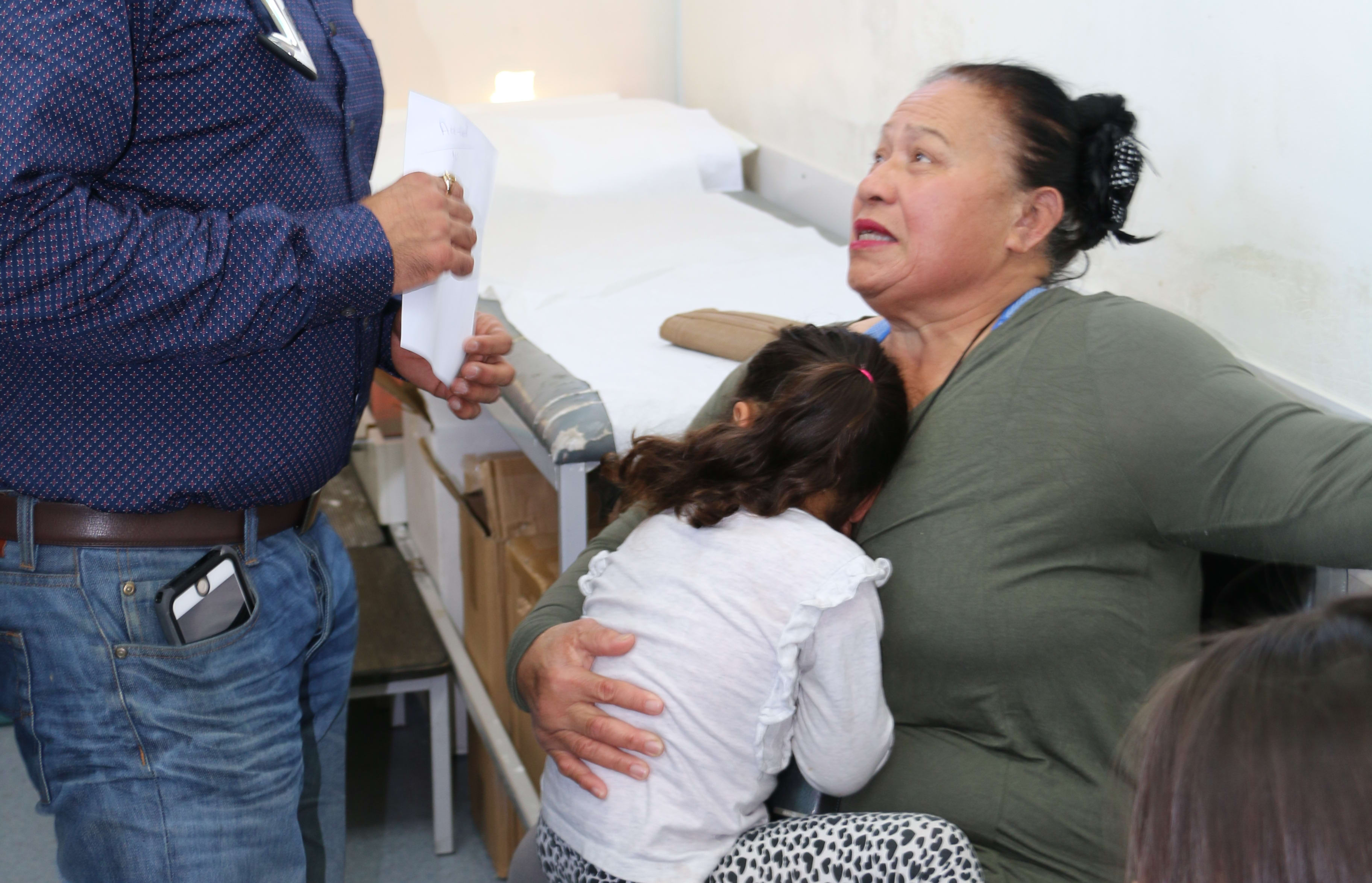
Sometimes the clinic treats or consults with more than 300 patients in a day, one of its doctors says. Photo: RNZ / Lynda Chanwai-Earle
Outside of business hours, Ranjna is a strong advocate for her community. She and her husband funded and built the Shree Swaminararyan Hindu temple in Papatoetoe that over 500 people regularly attend.
At the temple, the support team behind this inspirational woman comes in the form of Ranjna’s husband. Dr Kandi Patel tells me that their vision started 40 years ago with their single small GP's clinic in Otara. "We put our profits back into our businesses and grew them. That's the principal we work from - make it sustainable."
Nikita, an international students originally from the Indian community in Kenya, is quick to praise Aunty Ranjna.
"When we come from another country we're vulnerable, we can get ripped off easily but Aunty Ranjna took us in, she looked after us, like another mother. We need lots more Ranjna Maams in New Zealand, that would be awesome."
We're back in Ranjna's car and traveling to Otahuhu towards a secure facility set up for men involved in domestic violence cases. One of Ranjna's other enduring initiatives is the creation of Gandhi Nivas in 2015 - a programme focused on ending domestic violence.
Four out of the 14 women that die annually as a result of family violence in New Zealand are Indian and Indians also account for 55 percent of the protection orders breached here. Engaging with the police and various counselling services has helped Ranjna create this long-term generational change programme that to date has supported 250 families from ethnic communities across Counties Manukau.
The crucial difference in this unique pilot programme (the first of its kind in the country) is that it provides a safe place for the men to stay, so that the women and children do not have to leave the home.
At Gandhi Nivas, Sahaayta counsellor Karthik Nandikoor wears his heart on his sleeve when it comes to Ranjna.
"She is like my mum, she is so caring. Gandhi Nivas would not exist if it were not for Ranjna Maam."
Two others agree. In the cheerful meeting room of the Sahaayta Counselling and Social Support Centre, director Sucharita Varma and ethnic liaison officer Sergeant Gurpreet Arora explain the depth of Ranjna’s extraordinary contribution to the community.
Sucharita tells me she has offended other community leaders by criticising what she sees as their lip-service on the issue of domestic violence. "Ranjna put her hand up for the job and then she found the funding. She made Gandhi Nivas possible. She is a leader who walks the talk."
Sergeant Arora brings home the poignant reality for their community:
"Over 250 men have been helped by Gandhi Nivas. That's 250 women still alive and children who still have their parents, 250 families still intact today. By making Gandhi Nivas happen Ranjna Maam sets an example for us all. She is a leader who can lead."
The New Zealand Entrepreneur of the Year will be announced in November. The EY World Entrepreneur of the Year will be announced later, in Monaco.
